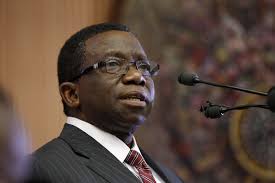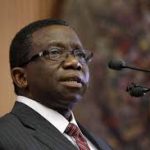By Asma’u Ahmad
The Federal Government has pledged to implement the international health regulation recommendations of the Joint External Evaluation conducted in the country.
The Minister of Health, Prof. Isaac Adewole, said this at the closing ceremony of the Joint External Evaluation of Nigeria’s International Health Regulations in Abuja.
“This is where we must take charge of our destiny. God has given us the capacity to think and to conduct this type of exercise, the rest is left for us and I want to assure you that I will not fail you,” he said.
The minister also said that Nigeria would quickly move on to the next level of work in the regulations.
Prof. Adewole said that the theme for the Joint External Evaluation of Nigeria’s International Health Regulation is “Strengthening National and Global Health Security”.
“Nigeria is taking the lead in the peer review mechanism of the Health sector which would save more lives,’’ he added.
The Chief Executive Officer, Nigeria Centre for Disease Control (NCDC), Dr Chinwe Ihekweazu, said that the evaluation was important to enable Nigeria take care of its citizen.
Dr Ihekweazu stated that the meeting was held to update health regulations and to adhere to international regulations, having signed up to the International Health Regulation in 2005.
“Following the Ebola breakout a couple of years ago, the world has come together and realised that we really have to hold ourselves accountable in our performance in the health sector,” he said.
Ihekweazu noted that from the meeting, Nigeria would be able to rank itself and see how well it has done.
The Programme Director of the American Centre for Disease Control, Mr Daniel Duvall, commended Nigeria for taking the lead in health evaluation.
Also speaking, the Director Surveillance at the Nigeria Centre for Disease Control, Mrs Olubumi Ojo, said Nigeria needed to improve on its electronic reporting part.
Similarly, a representative of the World Health Organisation, Mrs Mary Stephens, said that such meetings could help countries prepare for emergencies.
“Emergencies will happen in Africa and even around the world but what we need is to be prepared so that we are not taken by surprise. To put our systems in place so that when these emergencies come we can detect early and initiate a quick response,” she advised.





